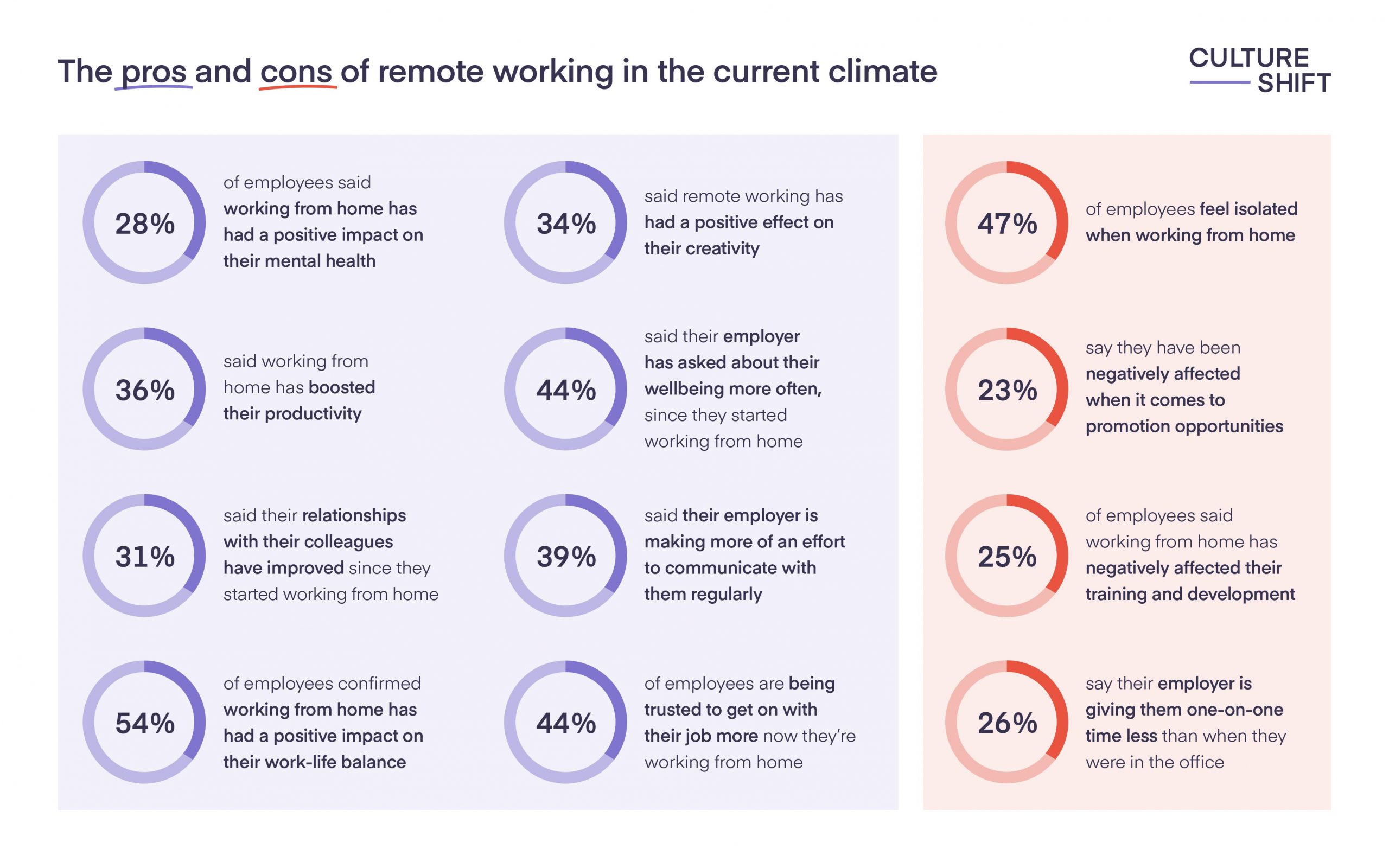The events of recent months have positively impacted workplace culture across Britain with 73% describing it as positive in the current climate and 38% saying it has actively improved since they transitioned to remote working.
As half of the UK’s workforce transitioned to remote working earlier this year, organisations were thrust into the spotlight with many standing by to see if they were able to make the transition seamlessly without detrimental impact on their culture. The same report also uncovered that more than one-third (36%) said working from home has boosted their productivity, while more than 28% said working from home has had a positive impact on their mental health and 45% are dreading going back to the workplace.
“There’s no doubt the COVID-19 pandemic has resulted in challenging times for businesses. With many teams working remotely, organisations have had to improve their communication, keeping employees informed of developments, while demonstrating empathy, and providing coaching plus support for their mental health and general wellbeing,” comments Olive Strachan MBE, founder of Olive Strachan Resources Ltd, global business woman and diversity and inclusion specialist.
“The research found that most employees have credited their organisations with having a positive culture in the current climate, with many benefitting from improvements to their productivity, overall wellbeing, creativity, work-life balance and relationships with key stakeholders, such as their employer,” continues Olive.
Remote working has long been an area of contention for many organisations, but as the transition back to work continues across the UK, employees are calling for those at the top to consider a more modernised approach.
On the positive impact of working from home on various cultural factors, the research found:
- 54% of employees confirmed working from home has had a positive impact on their work-life balance
- 37% of employees said they feel more likely to experience something they would describe as bullying or harassment while in the workplace, compared to just 26% who feel more likely to face this while working from home
- 29% of employees confirmed working remotely has positively impacted their job motivation
- Almost one-third (29%) are receiving passive-aggressive comments less often now they’re working from home
- Creativity has improved for many, with more than one-third (34%) saying remote working has had a positive effect
- Trust has improved for the better with 35% confirming trust in their boss/employer has been positively impacted
- Almost half (44%) said their employer/boss has asked about their wellbeing more often, since they started working from home
- Almost half (44%) are being trusted to get on with their job more now they’re working from home, meaning many are able to work autonomously without being micromanaged
On the negative effects of working from home, the research found:
- Imposter syndrome and self-doubt are rife, with more than one-quarter (27%) feeling these more so working from home than they did previously
- Gen Zers and Millennials are doubting themselves in the current climate more than anybody else, with almost one-third (31%) of 16-34-year-olds doing it more now they’re working from home than they did when they were in the office
- Almost half (47%) of employees feel isolated when working from home
- Progression has been impacted for the worse, with 23% saying they’ve been negatively affected when it comes to promotion opportunities
- One-quarter (25%) of employees said working from home has negatively affected their training and development
“With many organisations across the country now thinking about how they can bring employees back to the office safely, we wanted to hone in on the general consensus on remote working these past few months. While there have been some minor issues, it’s generally been quite successful,” says Gemma McCall, CEO and co-founder of Culture Shift.
Gemma concludes: “Remote working has positively impacted employees’ wellbeing and is something employers should absolutely be considering as they plan for the future – especially now the success of this approach has been clearly proven.
“While there are of course some key factors organisations need to work on, like continued commitment to training and development, as well as progression, employers should be ensuring they have systems and tools in place to empower their teams to remain productive, creative and supported, even while they’re working from home.”
Research from Culture Shift.









